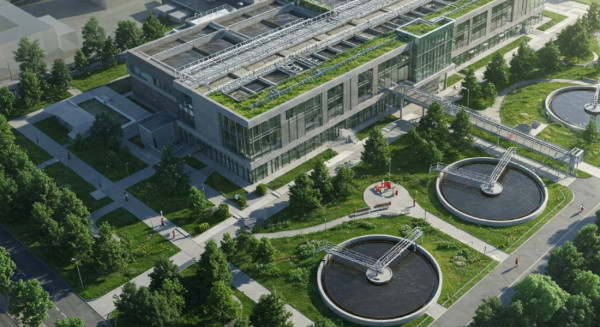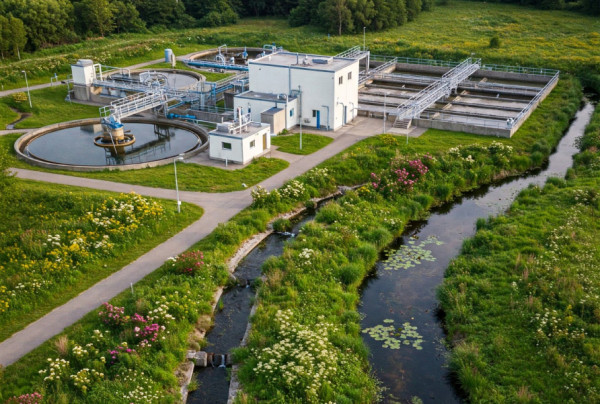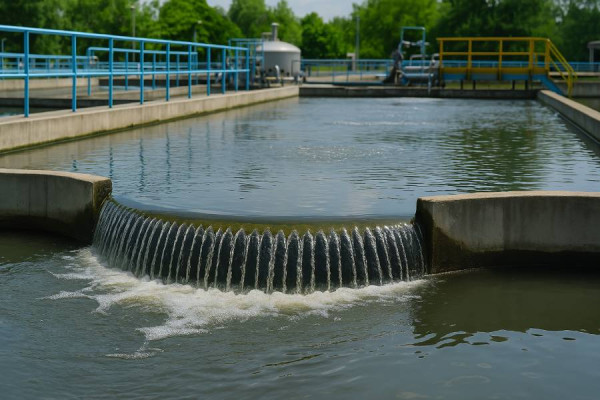News & Blogs
Wastewater Treatment in Nepal: Challenges, Solutions & Future Trends
-1739958089.jpg)
Nepal, a country celebrated for its natural beauty and cultural heritage, is grappling with the growing challenge of wastewater management. Rapid urbanization, population growth, and industrial expansion have intensified the pressure on the country’s limited wastewater treatment infrastructure. Untreated wastewater is polluting rivers, degrading ecosystems, and posing serious health risks to communities.
Effective wastewater treatment is not just an environmental necessity but also a cornerstone of sustainable development. This blog delves into the challenges Nepal faces, explores innovative solutions, and highlights future trends that could transform the wastewater treatment landscape in the country.
Current State of Wastewater Treatment in Nepal
Nepal’s wastewater management system is still in its nascent stages. According to recent studies, only a small percentage of wastewater generated in urban areas is treated before being discharged into rivers and other water bodies. In rural areas, the situation is even more dire, with limited or no wastewater treatment facilities.
The Bagmati River, which flows through the capital city of Kathmandu, is a stark example of the consequences of untreated wastewater. Once a sacred river, it is now heavily polluted due to the direct discharge of domestic and industrial waste. This not only affects the environment but also poses serious health risks to the population.
Challenges in Wastewater Treatment in Nepal
-
Lack of Proper Infrastructure
Nepal’s urban centers, including the Kathmandu Valley, lack adequate centralized wastewater treatment plants. Most untreated wastewater is discharged directly into rivers and open drains, severely polluting water bodies like the Bagmati River. -
Weak Enforcement of Regulations
Although Nepal has introduced environmental regulations, enforcement remains inconsistent. Industries and municipalities often bypass wastewater discharge standards due to insufficient monitoring and penalties. -
Rapid Urbanization and Population Growth
Unplanned urban expansion and population growth have outpaced the development of sewage and wastewater treatment systems, leading to overburdened drainage networks and increased pollution. -
Financial Constraints
Establishing modern wastewater treatment facilities requires significant investment, which is a major hurdle for both the government and private sector stakeholders. -
Low Public Awareness
Many households and businesses are unaware of the environmental and health hazards posed by untreated wastewater, resulting in poor waste disposal practices. -
Geographical Challenges
Nepal’s rugged terrain makes it difficult to implement centralized wastewater treatment systems, particularly in remote and hilly regions.
Solutions to Wastewater Treatment Challenges
-
Strict Policy Implementation and Monitoring
Strengthen regulatory frameworks and ensure strict enforcement of wastewater discharge standards. Provide incentives such as tax benefits and subsidies to encourage industries and municipalities to adopt treatment solutions. -
Adoption of Cost-Effective and Eco-Friendly Technologies
Implement nature-based solutions like constructed wetlands, bio-filtration systems, and biogas digesters. Use advanced technologies such as MBBR (Moving Bed Biofilm Reactor) for efficient treatment. Promote rainwater harvesting and wastewater recycling to reduce water wastage. -
Public Awareness and Community Participation
Conduct educational campaigns to highlight the importance of wastewater treatment and proper waste disposal. Encourage community-driven initiatives for small-scale wastewater management. -
Private Sector and International Collaboration
Foster Public-Private Partnerships (PPPs) to develop and manage wastewater treatment infrastructure. Seek funding and technical assistance from international organizations like the Asian Development Bank (ADB) and the World Bank. -
Development of Centralized and Decentralized Treatment Systems
Centralized Systems: Large-scale treatment plants should be established in major cities like Kathmandu, Pokhara, and Biratnagar.
Decentralized Systems: Technologies like DEWATS (Decentralized Wastewater Treatment Systems) are ideal for rural areas and new residential developments due to their cost-effectiveness and adaptability.
Future Trends in Wastewater Treatment in Nepal
-
Smart Wastewater Management
The integration of IoT (Internet of Things) and AI (Artificial Intelligence) will revolutionize wastewater monitoring and treatment. Smart sensors and real-time data collection will optimize treatment processes and ensure regulatory compliance. -
Wastewater Recycling and Reuse
With growing water scarcity, treated wastewater will increasingly be reused for agricultural irrigation, industrial processes, and even potable water supply after advanced treatment. -
Energy Recovery from Wastewater
Wastewater treatment plants will play a key role in generating biogas and electricity, contributing to Nepal’s renewable energy goals. -
Green and Nature-Based Solutions
Eco-friendly technologies like artificial wetlands and bio-filtration systems will gain popularity due to their sustainability and low operational costs. -
Improved Policies and Investment
As awareness grows, increased government investment and stronger policy frameworks will drive the development of wastewater treatment infrastructure, fostering sustainable urban growth.
Civiltech's Role in Paving the Way for Sustainable Wastewater Management in Nepal
Wastewater treatment in Nepal is at a critical juncture. While the challenges are significant, they present an opportunity for transformation through innovation, strategic policies, and collaborative efforts. Civiltech, a leader in engineering and infrastructure solutions, plays a crucial role in addressing these challenges by providing expert consultancy, designing efficient wastewater management systems, and implementing sustainable solutions tailored to Nepal’s unique landscape. By leveraging advanced technologies, fostering public-private partnerships, and prioritizing environmental sustainability, Nepal can develop a resilient wastewater management system. Investing in these initiatives today will pave the way for a cleaner, healthier, and more sustainable future for generations to come.



